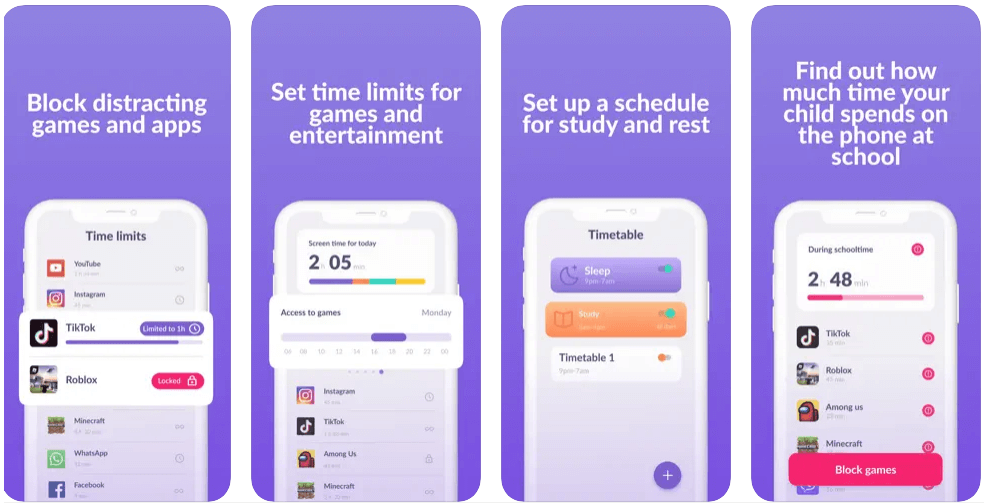ISTG Meaning: What Does This Internet Acronym Stand For?

As a parent, it’s important to stay updated with the latest slang your kids use, which is why we’re explaining the ISTG meaning and how to use it. Slang and texting phrases change with each new generation. The common slang phrases like “LOL” and “OMG” are now outdated and replaced with emojis.
Contents:
- What Does ISTG Mean?
- How to Use ISTG
- How to Reply
- When Should You Avoid Using ISTG?
- Similar Slang Acronyms
- How to Discover if Your Kid is Using the Slang Word
- How to Talk to Your Kid About Slang
- Stay Up to Date with Slang Words While Protecting Your Children Online
- FAQs
What Does ISTG Mean?

DisobeyArt/Shutterstock.com
ISTG stands for “I swear to God,” a phrase frequently used in text messaging, especially among the younger generation. This abbreviation encapsulates the original phrase, transforming it into a more succinct expression.
The acronym first appeared in the early 2000s to save time and characters when instant messaging. The slang was then used in text messages and is now used on social media apps like TikTok, X (formerly Twitter), and Snapchat to express disbelief or frustration.
While it’s a handy way to quickly convey a message, an acronym conveys strong emotions, such as frustration or passionate assurance. It serves as an emphatic promise, a declaration, or an exclamation of disbelief.
Just like the full expression, ISTG is used to express a high degree of certainty in something or to indicate anger or annoyance.
How to Use ISTG
You’ll commonly stumble upon the use of “ISTG” in various contexts of digital communication. Primarily seen in text messages, it’s also prevalent in posts across diverse social media platforms, and even in brief exchanges on X (formerly known as Twitter).
Understanding this acronym ensures you stay tuned in to the conversations your kids are engaged in online, providing a means of safeguarding them better in the evolving digital sphere.
ISTG Meaning In Texts and Chats
When kids use this teen slang in texts and chats with their friends, it’s often to express anger or certainty about a situation. Other times, it could be used in a threatening manner.
Some example uses can be seen below:
- Person #1: “ISTG, if I don’t pass the test on Friday, my parents are going to ground me!”
- Person #2: “You have to pass that test! We have the football game next weekend.”
Another example that could be seen as threatening could be:
- Person #1: “If you don’t stop spreading rumors, ISTG, I’ll go to the principal.”
- Person #2: “I swear to God, it’s not me spreading those rumors! Ask Michelle who she heard it from.”
Understanding ISTG meaning in your children’s text message conversations is one way to keep them safe and understand how they express themselves.
Meaning of ISTG on Social Media
On social media, ISTG carries the same meaning as it does in text messages—“I swear to God”—but it’s often used more publicly to express emotions, reactions, or strong opinions. Teens drop it into posts, stories, comments, or direct messages to add emphasis and show intensity.
How it looks across different platforms:
- Snapchat—Commonly appears as a reaction to memes, funny snaps, or surprising updates, usually to highlight an emotional response.
- TikTok—Used in dramatic or comical videos and in the comments section to boost the impact of a statement (“ISTG this trend cracks me up”).
- Instagram—Often added under posts or in stories to emphasize feelings in a casual, friendly way. For example, a teen might post, “ISTG, if the main character doesn’t end up with the hunk, I’ll cry!”
- X (formerly Twitter)—Typically tied to reactions about social or political events, like “These politicians need to get it together, ISTG 🙄.”
- WhatsApp—Appears in private conversations, often between friends or couples, to underline the seriousness of a thought or promise.
In all cases, ISTG works as a shorthand for strong emotion—whether it’s frustration, humor, or sincerity—and helps teens express themselves quickly across platforms.
How to Reply

pikselstock/Shutterstock.com
ISTG is one of the simpler internet slang terms to use for parents. Just as you would say, “I swear to God,” in a conversation, you would simply replace it with the acronym.
In many contexts, this acronym is used to express annoyance, anger, or emphasis on the seriousness of a situation, thought, or feeling.
It is also used to express assurance of a situation or event. It emphasizes that the person is telling the truth. For example, “I returned the book to the library on time, ISTG!”
If your teen uses this slang phrase with you in text, reply normally, but understand that they are serious about their feelings about what you are talking about or assuring you about something.
When Should You Avoid Using ISTG?
There are specific times and places where teens (and adults) shouldn’t use slang terms.
Some circumstances to avoid using “I swear to God” include:
- Conversations where respect is expected towards the other person
- Professional conversations with teachers, employers, etc.
- Conversations where the term may be taken offensively, such as with religious persons
Similar Slang Acronyms
There are other slang terms you may use to substitute ISTG. These include:
- FR—for real
- ONG meaning—on God
- ISTFG—I swear for f**k**g God (this term isn’t normally used, but it is important to be aware of it)
Common Slang Acronyms to Know
With online interactions, such as chats and comments, often using digital language, it’s important for parents to understand what these acronyms mean. Below is a list of commonly used slang terms by teens.
- OMG (Oh my God)—an expression of surprise or shock.
- IDK (I don’t know)—used when someone is unsure or doesn’t know the answer.
- BRB (Be right back)—commonly used in chats to indicate a temporary absence.
- TTYL (Talk to you later)—a casual way to say goodbye in messages.
- LOL (Laughing out loud)—shows that someone is funny, often used as laughter in texting.
- SMH (Shaking my head)—used to express disapproval, disappointment, or disbelief.
- TBH (To be honest)—adds sincerity or honesty to a statement.
We’ve created an entire section on slang expressions to help parents stay on the same page as their teenagers! Come and explore.
How to Discover if Your Kid is Using the Slang Word
As a parent, you should stay updated with the lingo your child uses, including trendy acronyms.
Open discussions about new slang will help you stay involved in your child’s virtual world. Eavesdropping on their conversations can also offer valuable insights. This doesn’t mean invading their privacy, but rather, being a part of their environment.
The wealth of online resources, including articles like this, is your aid in understanding this unique language. Remember, direct conversations help too.
How to Talk to Your Kid About Slang
Keep communication lines open with your children regarding the language they use, particularly with slang terms that are gaining popularity.
It’s important to help them understand that while slang might be fun to use, some phrases can be inappropriate or defensive. Broaching this subject lets you clarify the nuances of communicating respectfully.
Approach these conversations with curiosity rather than judgment to create a safe environment for open dialogue. Conversation starters, such as asking your child what a slang term means, can go a long way. You might be surprised at how receptive they are to your interest in their lingo.
Beyond conversations, it’s also helpful to use parental control apps like Kids360. It’s a useful resource enabling parents to monitor their child’s online communications, get a sense of the common slang words they are using, and better guide them on their digital journey.
Stay Up to Date with Slang Words While Protecting Your Children Online
Parents have a ton of responsibilities to fulfill to keep their young ones safe and protected. One of these responsibilities is staying updated about new and commonly used slang terms. While speaking with your kids about slang, new word mastery, or emojis like the heart sign can be helpful, downloading a parental control app to keep an eye on your children’s online activity is also helpful in keeping them safe from risky behaviors and staying in the know.
If this article was helpful and enlightening to you, share it with other parents to help educate them on the ISTG meaning and more!
FAQs

Prostock-studio/Shutterstock.com
What should I reply to ISTG?
There are many ways to reply. It’s important to understand that the person using an acronym is expressing a strong emotion, such as annoyance, anger, or assurance.
What does ISTG mean on Snapchat?
When used on Snapchat, it means “I swear to God.”
How to use ISTG in a sentence?
An example of how this acronym is used in a sentence is, “ISTG, my parents are going to ground me when they find out I didn’t pass my math test today.”
What does GTS mean?
GTS means “go to sleep.”
What does ISTG mean for Gen Z?
ISTG in Gen Z slang means “I swear to God.” This could be to emphasize what they are saying or used as an exclamation similar to OMG.
What does “no ISTG” mean?
“No ISTG” doesn’t have a specific meaning. It could be used to contradict ISTG (I swear to God) to further emphasize the slang term.
What is the meaning of Rizz?
The slang term, Rizz, comes from the word “charisma” and means style, charming, and attractive. It’s usually used when someone is skilled at attracting love interests.
The picture on the front page: Kateryna Onyshchuk/Shutterstock.com
Проверьте электронный ящик




















